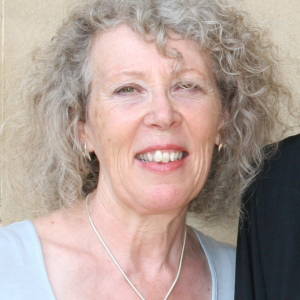Höfði House
This quite small and unassuming house sits next to the dual carriageway that runs along Faxa Bay, and its back windows look out over the road to the water; but this side, which faces the town's business district, is actually the front, with a curved drive that's currently hidden under the snow, and several interesting sculptures adorning a small area of lawn. It was built in 1909, and was originally the home of the French Consul in Iceland; later it was bought by the British and occupied by their Ambassador, until one resident - who I suspect may have lived more well than wisely - decided that it was haunted, and persuaded the Foreign Office to sell it. It's now owned by the city of Reykjavik. It's not open to the public, but it is one of the most famous buildings in the city, which is why people turn up - even first thing in the morning which is when I took this shot - to walk around the outside of the building and have their photos taken outside it.
So why is it famous? Over two days in October 1986 Mikhail Gorbachev and Ronald Reagan held a summit in this house to discuss the abandonment and elimination of nuclear weapons. The talks ultimately foundered on Reagan's determination to proceed with the American Strategic Defence Initiative ("Star Wars"), and Gorbachev's insistence that SDI should also be abandoned, and initially the summit was deemed a failure. But with hindsight, it's now said that the progress made by the two men during those two days paved the way for the INF Treaty that was signed in Washington the following year, and that the meeting in Reykjavik was the beginning of the end of the Cold War.
If you're as old as I am you'll be able to remember the Cold War and the Iron Curtain, and the fact that for several decades Europe existed in a state of ongoing, low-level stress about the possibility of nuclear conflict breaking out on the continent. The INF Treaty was a huge step towards removing the threat; and when perestroika and glasnost under Gorbachev led, unpredictably (to me at least), but inexorably, to the break-up of the USSR, the reunification of Germany and the democratisation of Eastern Europe, it really felt as though the western world had undergone a political and social step change, away from World War II and into the light of a peaceful period of international goodwill and cooperation.
Maybe we were naive, to think that those who want personal power and will do almost anything in order to get it had been defeated; or maybe we just relaxed too much and took our eye off the ball. But now we have Putin and Trump, and Britain is riven almost in two by the ongoing not-very-civil war of words over Brexit, and standing outside this house and thinking about its place in the history and politics of the last century brought me almost to tears.
I welled up again momentarily about four hours later, as our plane took off from Keflavik Airport. R and I really go for it on these short breaks, and usually by around day four we're both on our knees with exhaustion, and dying to get home for a rest - but this time I wasn't even slightly ready to go. I love this country, and I can't wait to come back again - and among the highlights of the holiday for me is the fact that R, who never had the slightest desire to visit Iceland, has fallen for the place as well. His only condition for a return visit is that next time we do it at a warmer time of year.

Comments
Sign in or get an account to comment.


